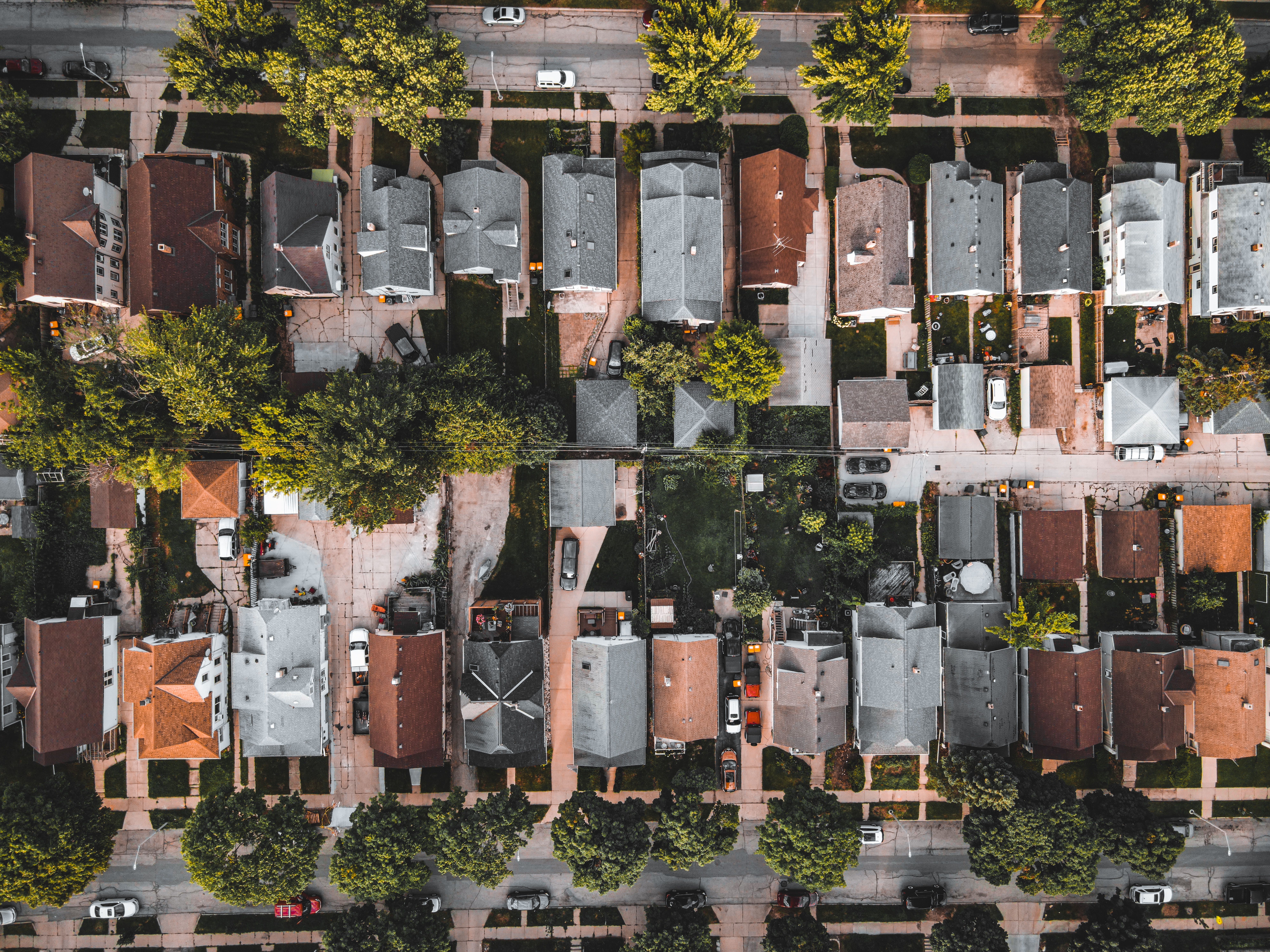
Out Of State Landowners Are Not Predatory
Milwaukee government and the local press continue to bang the drum of home ownership. Their idea is reasonable enough: 1) as homeowners normally take pride in their house and make efforts to keep it in good condition 2) and don't move as often, 3) more homeowners in troubled neighborhoods raises the potential to develop relationships and trust among neighbors 4) thus alleviating some of our local social issues such as violence, reckless driving, etc.
Recent news stories based upon statistics from John D. Johnson's living report proclaim out-of-town private equity groups predatory for buying up affordable housing stock that local homeowners would otherwise purchase. A quick search of these neighborhoods on Zillow lists numerous houses for sale ranging from $16 thousand to $200 thousand.
Predatory
from The American Heritage® Dictionary of the English Language, 5th Edition.
- adjective Living or characterized by preying on other animals.
- adjective Living or characterized by plundering, pillaging, or marauding.
- adjective Living or characterized by the exploitation of others for personal gain.
Helping people that have the means and desire to own a house is admirable but villainizing landlords is unnecessary. Milwaukee has ample low priced housing in the reported areas because there is continually above average crime rates, low performing schools, and less amenities (essentially the results of concentrated poverty) which lowers demand to live there despite the close distance to downtown. The housing stock around the city tends to be older and more expensive to maintain; when a house built in 1912 has a problem it will cost substantially more to fix compared with a similar problem in something built in 1990 for example.
Dorothy York, the vice president of real estate for Acts Housing, a nonprofit that helps low-income families become homeowners, said it’s important not to paint all investors in the same light.
“Predatory investors are often out-of-state companies that come into usually low-income neighborhoods, take advantage of the community and have destabilizing effects on the neighborhood,” she said. “But we’ve had investors in Milwaukee for years that have been providing safe affordable rental units to people and those are essential.”
Johnson's original report is presented plainly (a great thing!) and does not make use of the word predatory. The Urban Milwaukee article extracted the term from York's quote. Neither York nor the article describe how investors are "taking advantage of the community" or creating "destabilizing effects on the neighborhood." Is there evidence these neighborhoods have deteriorated more in the last 20 years then comparable districts nearby? How many low income families are trying to buy a home and failing because of the private equity groups? We hear a lot from local investors and non-profits that compete directly with the "predators" for houses but nothing from people that rent in these neighborhoods or the individuals looking to purchase a home there.
If a person/family has a stable income and some savings to tide them over when unexpected problems arise, owning a house can be wonderful. 24% of Milwaukee residents are in poverty according to the US Census Bureau; based upon their specific circumstances many people determine that renting an apartment is their most prudent option. It could be that they would purchase a home but are unbanked or the desired house has one of the problems common with old houses in Milwaukee that lead to a denied mortgage. See below how poverty and renting line up in these districts and for an interactive map see City-Data.com..
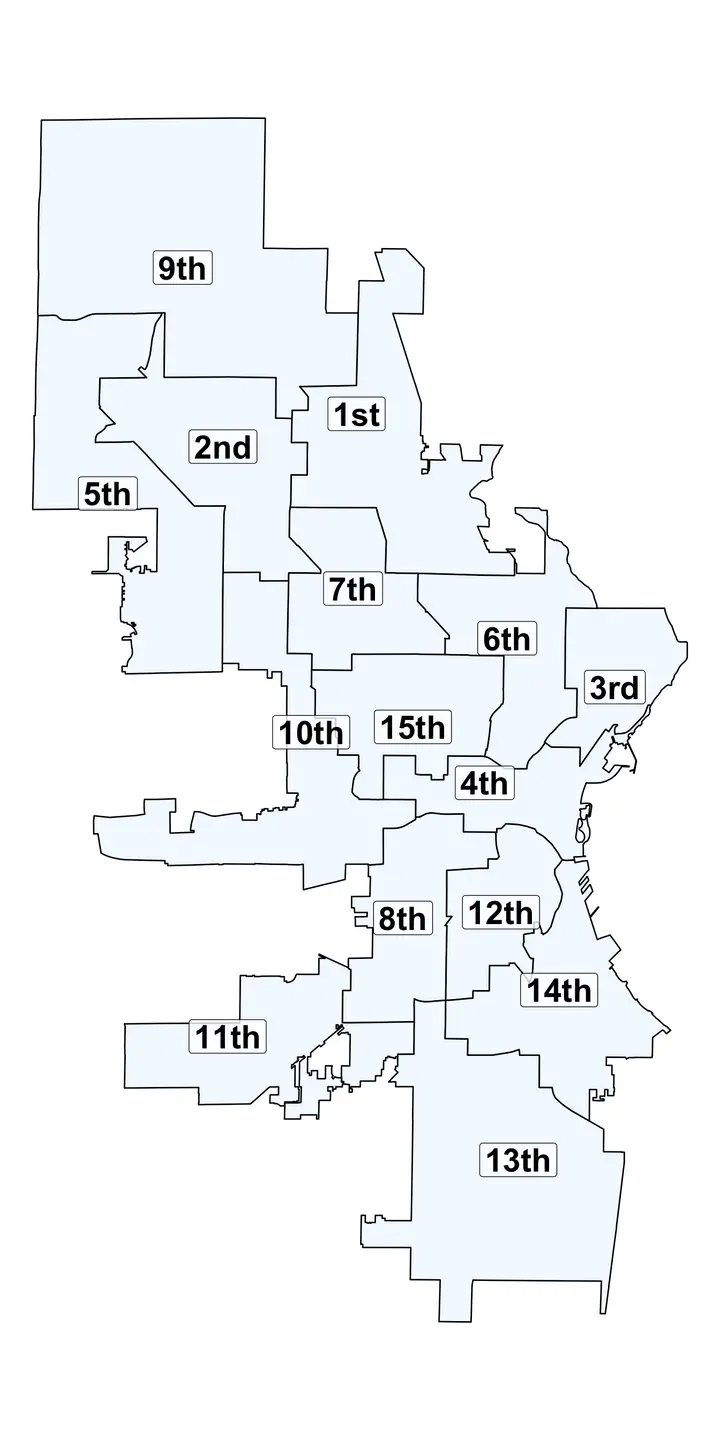
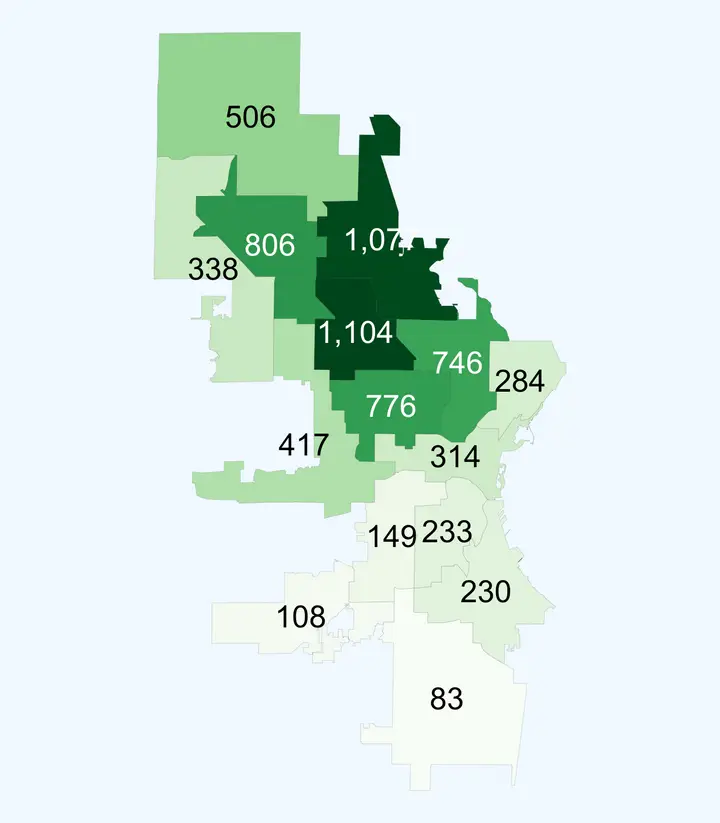
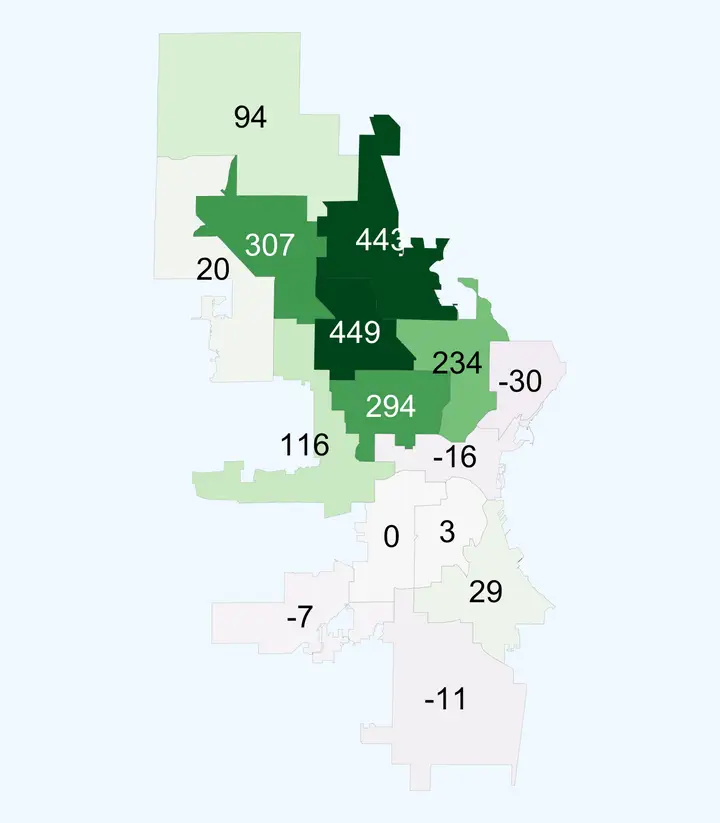
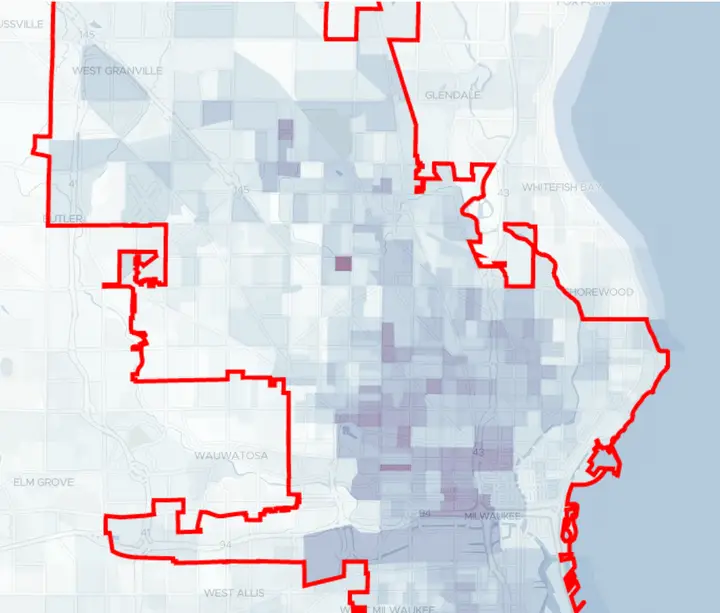
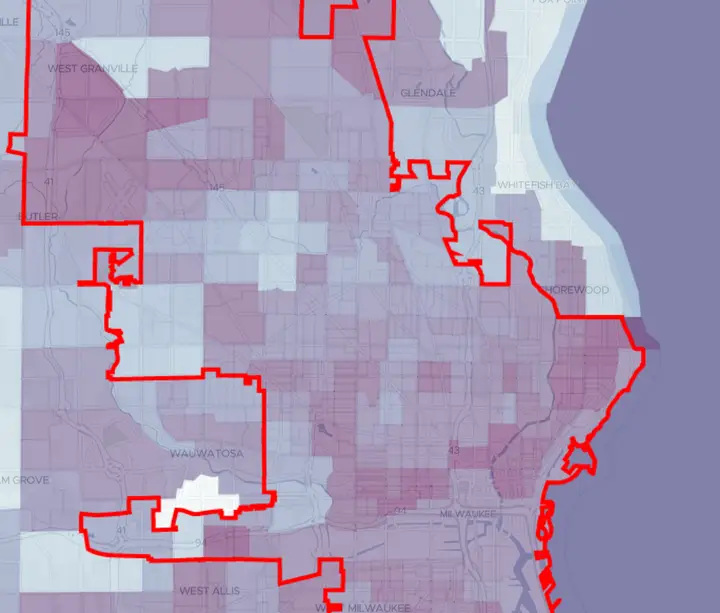
I imagine a family on a tight budget might prefer the more predictable expense of rent + utilities compared with the surprises that popup owning a house. If a rental property has a problem the landlord is generally responsible for fixing it. If you are a homeowner, the asbestos/black mold/leaky roof/broken water heater/rodent problems are all paid for by you. If repairs are put off too long the cost to fix will grow and your house will degrade along with it's value and your quality of life. With rentals most of these costs will still be passed onto the renter through higher rent but that would be delayed until their lease expires at which point they have options.
I remain unconvinced that landlords (out-of-state or otherwise) are much of a problem (at least no more so than at any other point in time.) I think most of the problems effecting renters are due to extremely old, inefficient houses that aren't adequately maintained or perhaps some local management companies that are underperforming their responsibilities. The difference between a local owner versus out-of-state is minimal in this context as either way a local management company is the one servicing the properties.

Comments